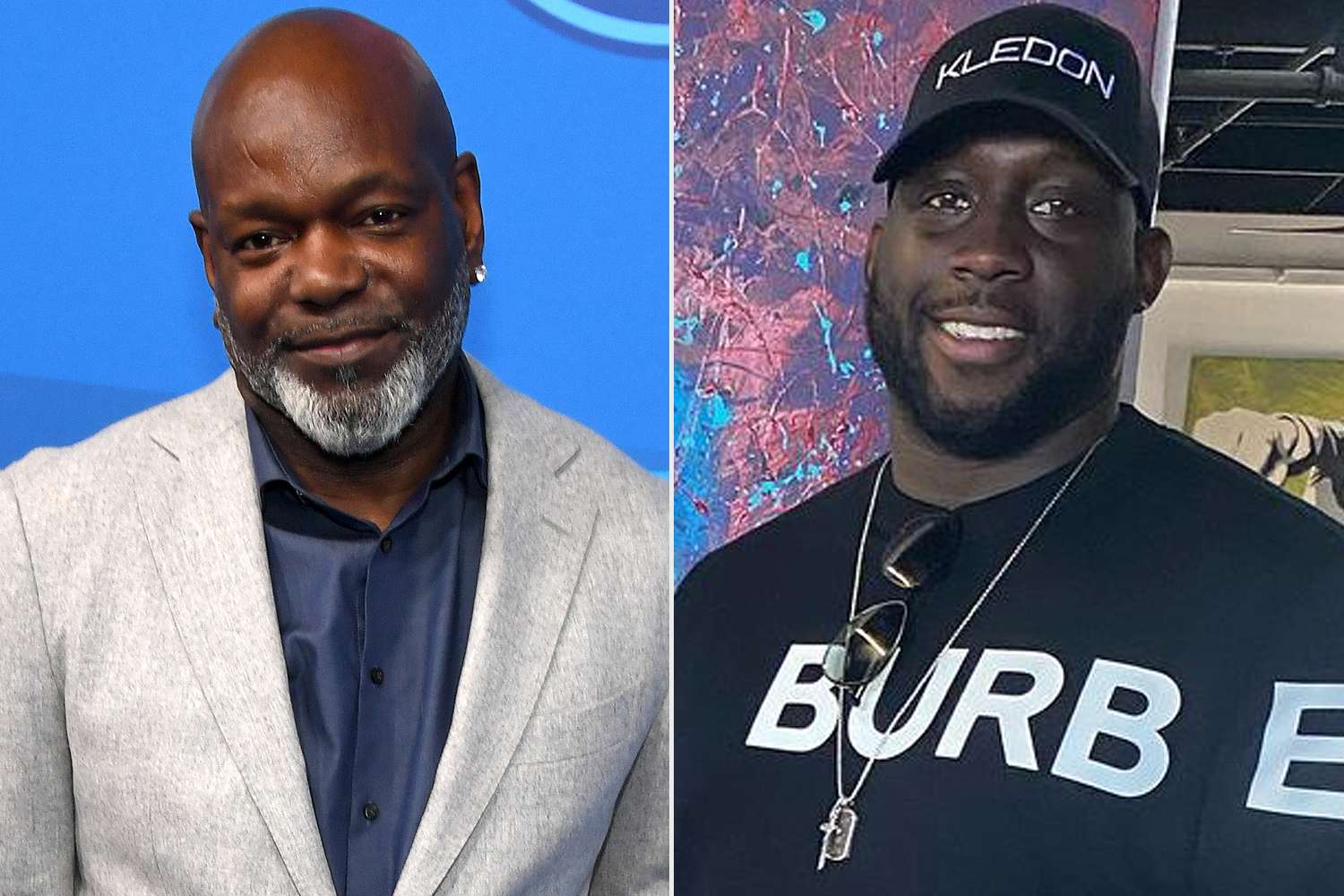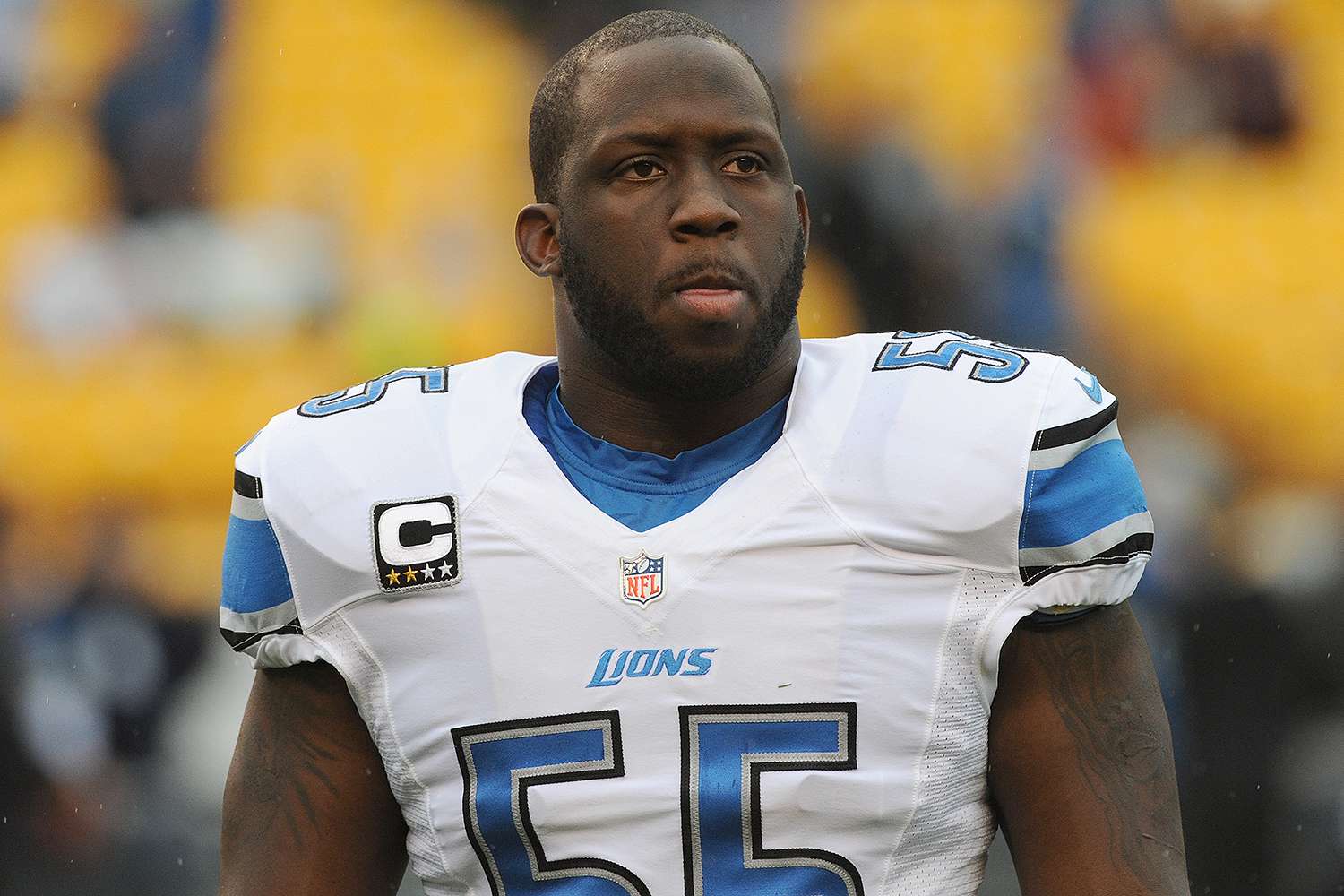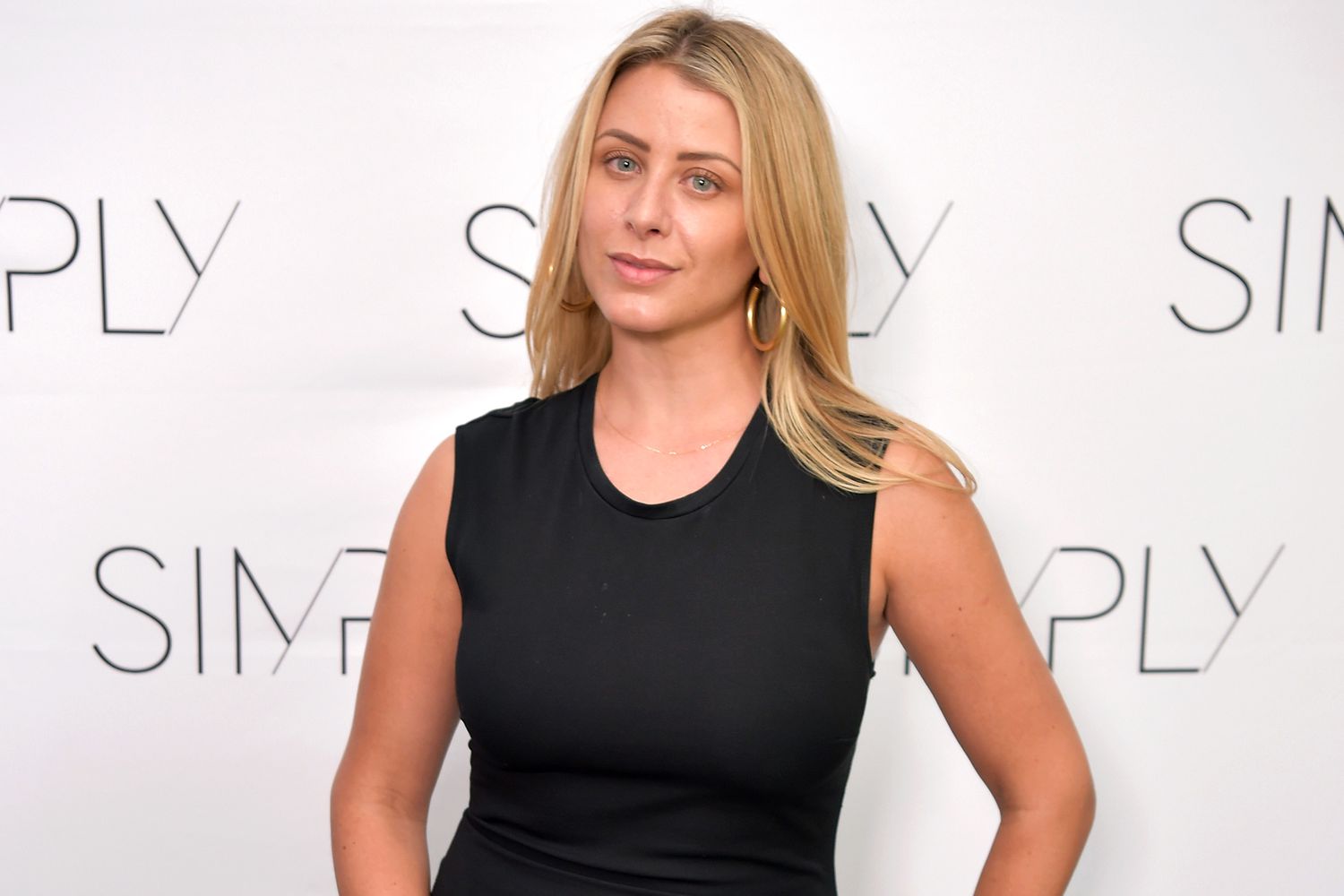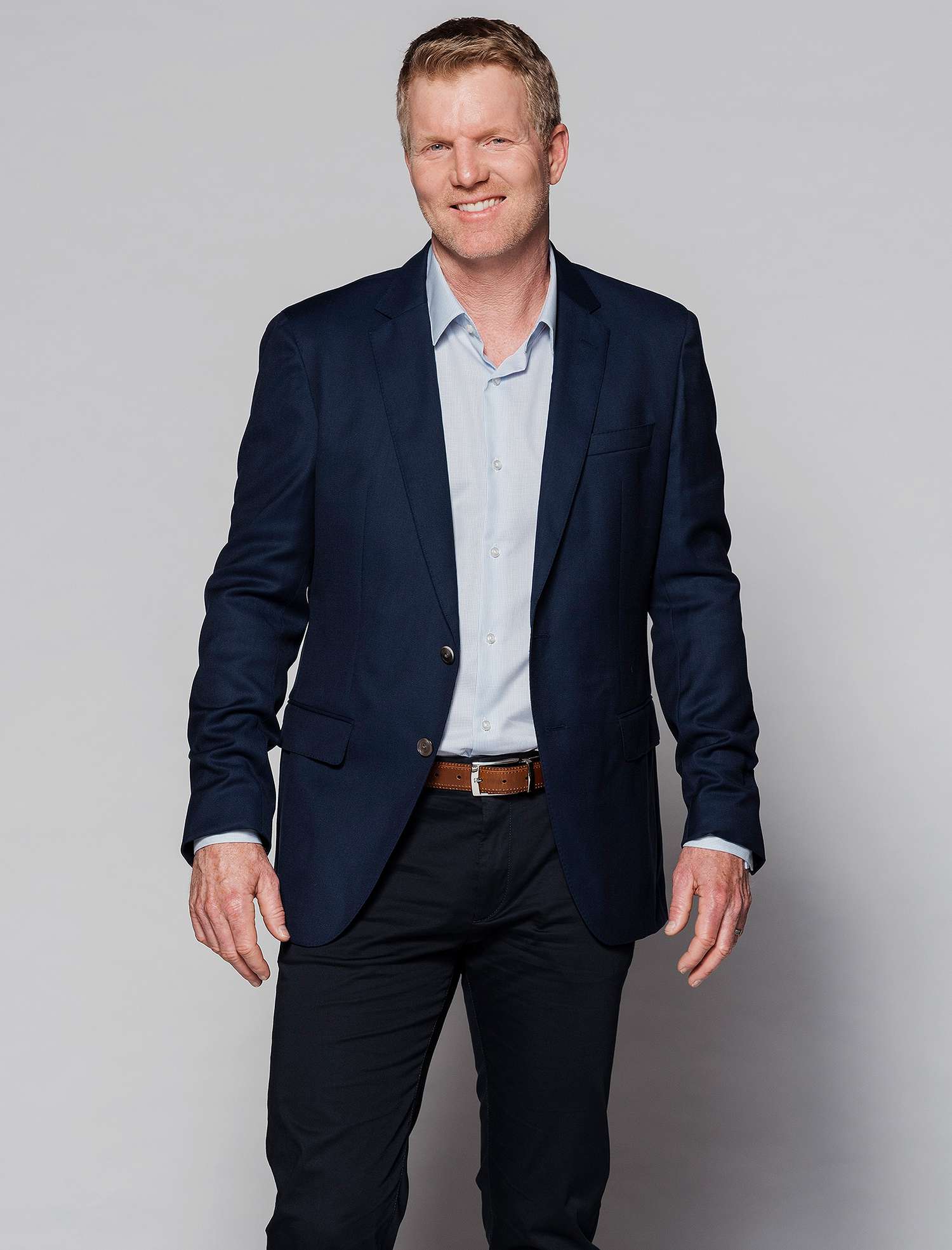Emmitt Smith and More NFL Players Are Turning to LinkedIn After Football Is Over — Here's Why
Back in 2018, the Indianapolis Colts' Nyheim Hines made headlines when he spent the team's bye week working behind the counter at a fast-food restaurant. The now 24-year-old said he wanted to ensure he had on-the-job experience in his back pocket for when his football career ends.
Said Hines to the Indianapolis Star at the time, "Let's be real. You could play the next game and get hit and never play again. That's sad to think about, but you have to."
He's not the only athlete thinking about the next step. According to data from LinkedIn Talent Insights, there are more than 11,000 "professional athletes" in the U.S. seeking connections on the business and employment online service. The phenomenon was recently highlighted in a piece by the New York Times last December.
"We're often introduced to athletes when they're scoring points and winning games. But on LinkedIn, pro athletes reintroduce themselves in a light in which the public doesn't often see them," LinkedIn News Editor Joseph Milord tells PEOPLE.
For some, that starts after they're done playing professionally, while for others, it's earlier.
Stephen Tulloch, who was drafted by the Tennessee Titans in 2006 and ended his career with the Philadelphia Eagles in 2017, is just one of many NFL players who have made the transition from the sport to more everyday occupations. Tulloch, 36, now owns the successful Circle House Coffee in Fort Lauderdale (and is opening a second location) but not all football players have an easy transition away from the multi-million dollar paying career.
"During my playing career, every offseason I'd go on LinkedIn, and I'd reach out to different businesses. And I'd reach out to the owners of these companies and I'd say, 'Look, I'm Stephen Tulloch of the Detroit Lions, I want to meet with you over lunch and just kind of talk to you about your business,' " Tulloch tells PEOPLE. "And these people opened the doors for me."
Back in 2009, Sports Illustrated reported that almost 78 percent of NFL players either go bankrupt or undergo financial strain within two years of retiring, according to The Undefeated. Tulloch is aware of the stat, telling PEOPLE, "it's a growing and a concerning number, and we have to find a way to kind of minimize that."
The former linebacker says his post-football career was always front of mind during his 11 years in the NFL, and he took advantage of any business programs the league provided. Last year, the league boasted a slate of professional development opportunities, from a personal finance camp to a business academy. (The NFL did not immediately respond to PEOPLE's request for comment on current programs.)
Tulloch admits that he's not sure many players take advantage of the programs, though.
"[They] basically introduce different avenues that people, in this case players, might want to direct their energy to after football, whether it's real estate, whether it's financing, opening up your own business, or entrepreneurship," he explains. "There's different sectors within that program that gear to particular students, in regard to what it is they want to ultimately do."
The opportunities now, are much different than when Emmitt Smith was a player, he says.
Smith, who spent 15 seasons in the NFL, tells PEOPLE, "They do a better job today than they did, in my opinion, back in the nineties. And so I think the players should be a little more astute, a little more equipped to deal with [the post-football transition]."
The 51-year-old retired back in 2005 after spending most of his career with the Dallas Cowboys. He now serves as president and CEO of Emmitt Smith Enterprises, an umbrella that includes his real estate solutions and services provider E Smith Advisors.
Smith says he "started the process" of building a post-football career "from day one."
"I was extremely frugal with everything," he recounts now. "I was eager to learn and ask questions in my rookie year. I had friends that had businesses already, and so I was asking questions about businesses. I was looking into franchise ownerships."
The Dancing with the Stars winner began investing in real estate and franchises, so that "once I approached retirement, I made it. It was very clear what I wanted to do and what I was passionate about and how I could best leverage myself. And that was one of the ways I did it."
Both Smith and Tulloch can see how their football careers have helped — and hindered — their professional development outside of the league.
"It helped with brand recognition and name recognition," Smith says of the NFL. "So yes, you can get into a door, but yet at the same time, I think it hurts because everyone wants to figure out how to leverage you."
He adds, "Here's the thing about being an NFL player or professional athlete, your relationships are mainly through sports. And when you retire, you have to build a totally different relationship based in the business world. Not only that, but then you have to prove yourself."
RELATED: New Orleans Quarterback Drew Brees Announces Retirement from NFL After 20 Years
That name recognition Smith mentions, can be a double-edged sword, according to Tulloch.
"It's one thing for somebody to take my name and type it in Google, and they can see how much I've made throughout my career, what I've done. They know my whole life," he explains. "But what I can do is be transparent in my change of careers, and kind of exemplify what I did during my career through [the charitable Stephen Tulloch Foundation], what I'm doing with my coffee, — giving back to people through coffee — and just kind of let people absorb that and understand that this is who I am, this is what I'm about."
Part of that has been made possible by LinkedIn. Tulloch has a personal page, he says, as well as a business page for this coffee shop, Circle House. The platform is a source, he says, for him to get in touch with people not in his usual circles, eventually opening up doors for collaboration and growth. And through his business page, he's connecting with potential employees.
Smith admits that it can be difficult to filter through connection requests on LinkedIn when you have a name as recognizable as his: "I'm looking at what's real and what's not, who is actually trying to connect."
Luckily, Smith has developed a system for finding opportunities that are the best fit for both his companies, and his personal brand — like speaking engagements.
And more and more athletes are realizing that potential.
"Some of our most notable members, like NBA champion and investor Andre Iguodala, have often said the new-age athlete is much more business-savvy," LinkedIn's Milord tells PEOPLE. "There is no other platform on which conversations about business, professional, networking, career-building have more of a place than LinkedIn. So, it's not surprising that they see using LinkedIn as a great way to prepare for and transition into what's next, or unveil a major new project (as NBA All-Star Luka Doncic just did when he became the global chief hydration officer for BioSteel)."
For Smith and Tulloch, business is thriving — even amid a tumultous year when companies across the country struggled due to the COVID-19 pandemic.
"For us, this isn't a coffee shop. What we provide is the first and only drive-through coffee shop in Ft. Lauderdale," Tulloch says of his Circle House, which also highlights charities in the local community every month and gives back to them. "We created that vibe and that feel for people that when they come in, they're on a first name basis. We know what they need, we know what our customers want, and we can fill their needs and make them feel good, or even better when they walk out."
Like Tulloch, Smith is also using his success to give back, which he tells PEOPLE, is a no-brainer. He knows his background gets him through doors that others might never reach. "You have the chance to help that person, whether it's through financial means, through our charity or whether it's through words of wisdom and advice and experience here," he says.
Reflecting, both insist that current players shouldn't "wait until the end of their careers to prepare themselves" for the future, in Smith's words. He encourages NFL athletes to spend their offseasons getting educated in career fields of their interest, seek internships, and, most importantly, save money.
"I've been a player," Tulloch tells PEOPLE. "I left school early as a junior, I know what it is to take on $800,000 as a 21-year-old kid, and to make millions as you go through your career, and how to hold onto it as you leave the league. … I've done it, so I think for guys, they have to understand that you're not going to be getting these hundred thousand dollar checks every week. It's going to die out one day, and you have to prepare now."
Source: Read Full Article







